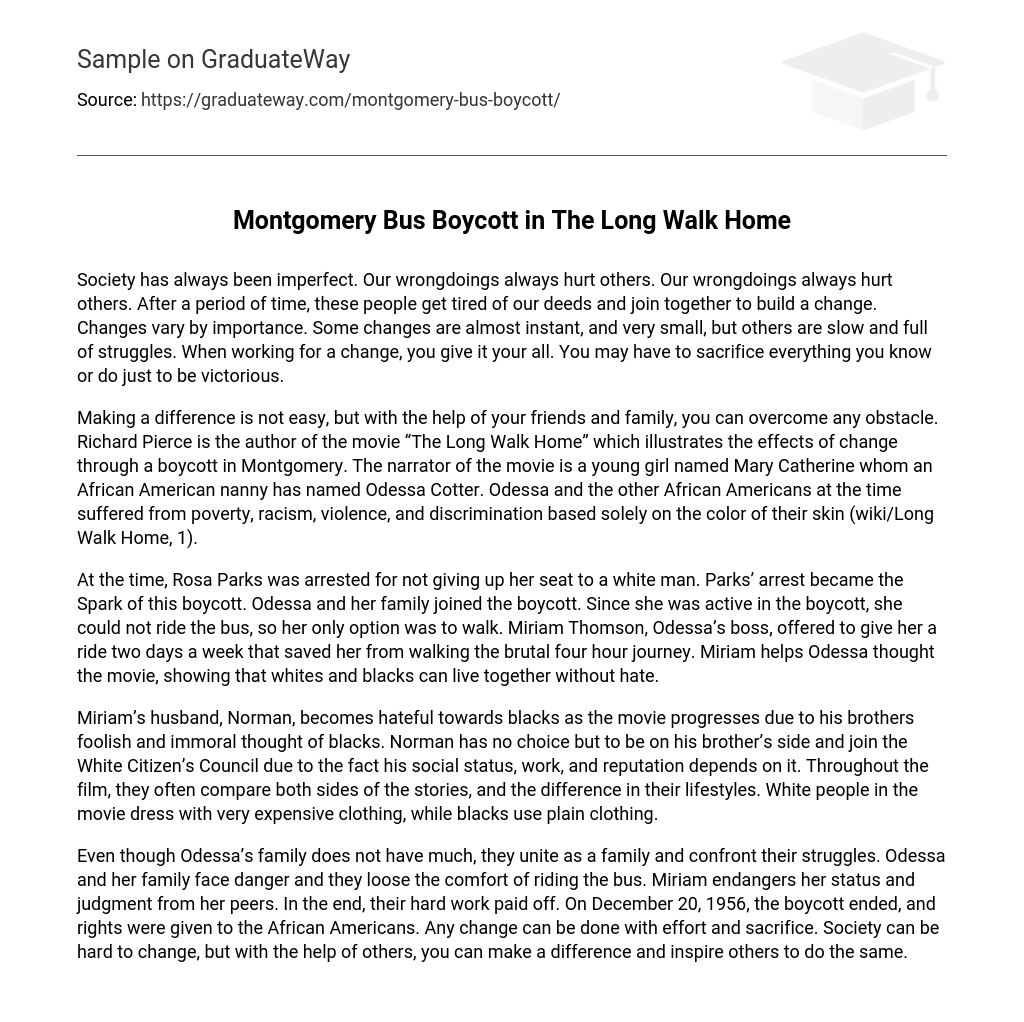Society has always been imperfect. Our wrongdoings always hurt others. Our wrongdoings always hurt others. After a period of time, these people get tired of our deeds and join together to build a change. Changes vary by importance. Some changes are almost instant, and very small, but others are slow and full of struggles. When working for a change, you give it your all. You may have to sacrifice everything you know or do just to be victorious.
Making a difference is not easy, but with the help of your friends and family, you can overcome any obstacle. Richard Pierce is the author of the movie “The Long Walk Home” which illustrates the effects of change through a boycott in Montgomery. The narrator of the movie is a young girl named Mary Catherine whom an African American nanny has named Odessa Cotter. Odessa and the other African Americans at the time suffered from poverty, racism, violence, and discrimination based solely on the color of their skin (wiki/Long Walk Home, 1).
At the time, Rosa Parks was arrested for not giving up her seat to a white man. Parks’ arrest became the Spark of this boycott. Odessa and her family joined the boycott. Since she was active in the boycott, she could not ride the bus, so her only option was to walk. Miriam Thomson, Odessa’s boss, offered to give her a ride two days a week that saved her from walking the brutal four hour journey. Miriam helps Odessa thought the movie, showing that whites and blacks can live together without hate.
Miriam’s husband, Norman, becomes hateful towards blacks as the movie progresses due to his brothers foolish and immoral thought of blacks. Norman has no choice but to be on his brother’s side and join the White Citizen’s Council due to the fact his social status, work, and reputation depends on it. Throughout the film, they often compare both sides of the stories, and the difference in their lifestyles. White people in the movie dress with very expensive clothing, while blacks use plain clothing.
Even though Odessa’s family does not have much, they unite as a family and confront their struggles. Odessa and her family face danger and they loose the comfort of riding the bus. Miriam endangers her status and judgment from her peers. In the end, their hard work paid off. On December 20, 1956, the boycott ended, and rights were given to the African Americans. Any change can be done with effort and sacrifice. Society can be hard to change, but with the help of others, you can make a difference and inspire others to do the same.





